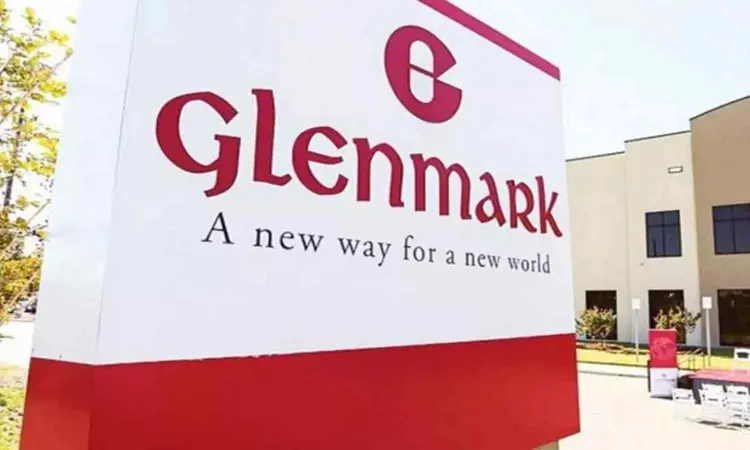- Home
- Medical news & Guidelines
- Anesthesiology
- Cardiology and CTVS
- Critical Care
- Dentistry
- Dermatology
- Diabetes and Endocrinology
- ENT
- Gastroenterology
- Medicine
- Nephrology
- Neurology
- Obstretics-Gynaecology
- Oncology
- Ophthalmology
- Orthopaedics
- Pediatrics-Neonatology
- Psychiatry
- Pulmonology
- Radiology
- Surgery
- Urology
- Laboratory Medicine
- Diet
- Nursing
- Paramedical
- Physiotherapy
- Health news
- Fact Check
- Bone Health Fact Check
- Brain Health Fact Check
- Cancer Related Fact Check
- Child Care Fact Check
- Dental and oral health fact check
- Diabetes and metabolic health fact check
- Diet and Nutrition Fact Check
- Eye and ENT Care Fact Check
- Fitness fact check
- Gut health fact check
- Heart health fact check
- Kidney health fact check
- Medical education fact check
- Men's health fact check
- Respiratory fact check
- Skin and hair care fact check
- Vaccine and Immunization fact check
- Women's health fact check
- AYUSH
- State News
- Andaman and Nicobar Islands
- Andhra Pradesh
- Arunachal Pradesh
- Assam
- Bihar
- Chandigarh
- Chattisgarh
- Dadra and Nagar Haveli
- Daman and Diu
- Delhi
- Goa
- Gujarat
- Haryana
- Himachal Pradesh
- Jammu & Kashmir
- Jharkhand
- Karnataka
- Kerala
- Ladakh
- Lakshadweep
- Madhya Pradesh
- Maharashtra
- Manipur
- Meghalaya
- Mizoram
- Nagaland
- Odisha
- Puducherry
- Punjab
- Rajasthan
- Sikkim
- Tamil Nadu
- Telangana
- Tripura
- Uttar Pradesh
- Uttrakhand
- West Bengal
- Medical Education
- Industry
Full dose escalation data show favorable safety profile of ISB 2001 for Multiple Myeloma: Ichnos Glenmark Innovation

Glenmark
New York: Ichnos Glenmark Innovation (IGI), a global, fully integrated clinical-stage biotechnology company focused on developing multispecifics in oncology, has presented promising full dose-escalation results from its Phase 1 TRIgnite-1 study of ISB 2001, an investigational first-in-class BCMA × CD38 × CD3-targeting trispecific antibody for the treatment of patients with relapsed or refractory multiple myeloma (RRMM).
These data, presented as a rapid oral presentation (Abstract #7514) at the American Society of Clinical Oncology (ASCO) 2025 Annual Meeting, demonstrated a sustained overall response rate (ORR) of 79% and a high complete/stringent complete response (CR/sCR) rate of 30% across seven active dose levels (≥ 50 µg/kg) in a heavily pretreated patient population, with a favorable safety profile. The ORR was 74% in all treated patients, including two patients treated at lower dose levels. ISB 2001 was designed to simultaneously target multiple myeloma by binding to the tumor associated antigens BCMA and CD38, even when expressed at low levels, while engaging T cells to trigger an immune response. This novel trispecific design enhances tumor-specific cytotoxicity and aims to overcome resistance mechanisms seen with first-generation bispecific antibodies and CAR T-cell therapies, while minimizing off-tumor toxicity.
Professor Hang Quach, M.D., Professor of Haematology at the University of Melbourne and Director of Haematology at St. Vincent’s Hospital Melbourne, said, “Responses to ISB 2001 highlight the remarkable anti-myeloma activity of this first-in-class anti-BCMA × CD38 × CD3 trispecific antibody-T cell engager in heavily pretreated RRMM patients, including those who have exhausted prior T cell-redirecting, BCMA-targeted, or anti-CD38 therapies - an especially challenging, quad-exposed patient population. With its unprecedented potency and tolerability, ISB 2001 has the potential to redefine the treatment landscape for RRMM, offering new hope for patients with limited therapeutic options.”
A total of 35 patients with at least one month of follow-up had received a median of six prior lines of therapy (range: 3–11) at study entry, underscoring a heavily pretreated population. ISB 2001 demonstrated high response rates at active dose levels, with 33 patients treated at ≥ 50 µg/kg (dose levels 3–9).
Responses were durable and deepened over time, irrespective of prior lines of therapy or refractoriness status, reinforcing the strength of earlier findings reported at ASH 2024 Annual Meeting in 18 patients treated with ISB 2001 at doses ≥ 50 µg/kg:
• The ORR was 79% (26/33), including a CR/sCR rate of 30% (10/33), with a median followup of 6.3 months (range: 1–16).
• Of the 10 patients achieving CR/sCR, eight were evaluable for minimal residual disease (MRD), and six achieved MRD negativity, indicating no detection of myeloma cells by molecular or flow cytometry assays with 10-5 sensitivity, and reinforcing the depth of response.
• Among 25 patients refractory to anti-CD38 therapies, the ORR was 72%, with a CR/sCR rate of 24%.
• In 19 patients without prior T-cell directed therapy (TCDT), including bispecific antibodies and/or CAR T-cell therapy, the ORR was 84%, with CR/sCR rate of 32%.
• Among 14 patients previously treated with TCDT, the ORR remained strong at 71% with a CR/sCR rate of 28%.
• In 15 patients who had received prior BCMA-targeted therapies, the ORR was 73%, with a CR/sCR rate of 27%.
• The median half-life of ISB 2001 was approximately 17 days, supporting the potential for less-frequent dosing.
Ruchika Sharma joined Medical Dialogue as an Correspondent for the Business Section in 2019. She covers all the updates in the Pharmaceutical field, Policy, Insurance, Business Healthcare, Medical News, Health News, Pharma News, Healthcare and Investment. She has completed her B.Com from Delhi University and then pursued postgraduation in M.Com. She can be contacted at editorial@medicaldialogues.in Contact no. 011-43720751
Dr Kamal Kant Kohli-MBBS, DTCD- a chest specialist with more than 30 years of practice and a flair for writing clinical articles, Dr Kamal Kant Kohli joined Medical Dialogues as a Chief Editor of Medical News. Besides writing articles, as an editor, he proofreads and verifies all the medical content published on Medical Dialogues including those coming from journals, studies,medical conferences,guidelines etc. Email: drkohli@medicaldialogues.in. Contact no. 011-43720751


